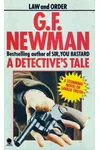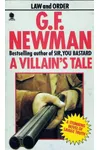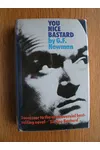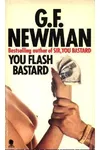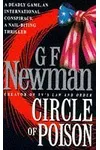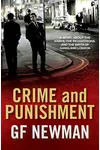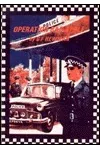Picture a British storyteller who spun gritty tales of crime and corruption, blending raw realism with a fierce passion for justice—meet G.F. Newman! Born in Kent in 1947, this novelist and TV producer carved a unique path in British culture, crafting morally complex crime novels and groundbreaking TV series like Law and Order. A staunch vegan and animal rights advocate, Newman’s convictions infuse his work, making him a compelling voice in crime fiction.
From his early days as a scriptwriter to his bold narratives that challenge societal norms, Newman’s career is a testament to storytelling with purpose. Let’s dive into the life and legacy of this fascinating author!
The Making of G.F. Newman
Gordon Frank Newman was born on May 22, 1947, in Kent, England. A childhood incident—being struck by a policeman over a misunderstanding about pears—left him deaf in one ear and sparked a lifelong skepticism of authority. At 16, he attended Stanislavsky acting school in Chislehurst, dreaming of stardom, but his creative spark found its true home in writing. By 18, he penned a script for the ITV series No Hiding Place, launching a career that would blend storytelling with social critique.
Influenced by his veganism and belief in reincarnation, inspired by vegetarian John Todd Ferrier, Newman’s worldview shaped his narratives. His disdain for systemic corruption and animal cruelty became recurring themes, setting the stage for his unflinching crime fiction.
G.F. Newman’s Unforgettable Stories
Newman’s debut novel, Sir, You Bastard (1970), was a bestseller that introduced Terry Sneed, a ruthless Scotland Yard inspector. This gritty crime thriller, followed by You Nice Bastard and You Flash Bastard/The Price, captivated readers with its morally ambiguous protagonist and raw depiction of corruption. The trilogy’s success established Newman as a master of complex, character-driven crime narratives.
His 2009 novel Crime and Punishment, later adapted into the BBC Radio 4 series The Corrupted, spans decades of London’s underworld, weaving fictional characters with real-life figures like the Kray twins. Critics praised its vivid historical detail and thrilling pace, calling it a “British Godfather.” Newman’s TV work, notably Law and Order (1978), was equally groundbreaking, exposing corruption in the British justice system with a documentary-like intensity that coined the term “faction.” Other series, like Judge John Deed and The Nation’s Health, tackled legal and healthcare systemic flaws, reflecting his anti-establishment ethos.
Newman’s style is unflinching yet empathetic, blending meticulous research with a knack for flawed, relatable characters. His stories don’t shy away from violence or moral grayness, but they always carry a thread of hope for redemption, reflecting his evolving focus on solutions over mere exposure.
Why G.F. Newman Matters
G.F. Newman’s impact on British crime fiction and television is undeniable. His Law and Order series was so controversial it sparked parliamentary debates, reshaping how TV tackled social issues. By blending fact and fiction, he brought systemic flaws to public attention, influencing a generation of writers and producers. His Terry Sneed trilogy remains a benchmark for morally complex crime narratives, while his vegan advocacy—insisting on meat-free sets during production—highlighted his commitment to animal rights.
Today, Newman’s work resonates for its bold honesty and timeless themes of justice and morality. His ability to weave personal convictions into gripping stories ensures his legacy endures in both literature and television.
- Born: May 22, 1947, Kent, England
- Key Works: Sir, You Bastard, Crime and Punishment, Law and Order, Judge John Deed
- Awards: BAFTA for The Healer (1996), Edgar Award nomination for Sir, You Bastard (1972)
- Fun Fact: Newman’s veganism led him to ban meat on his TV sets, comparing animal slaughter to the Holocaust.
Ready for a thrilling dive into crime and corruption? Snag Crime and Punishment or stream Law and Order to experience G.F. Newman’s gripping world of gritty realism!


